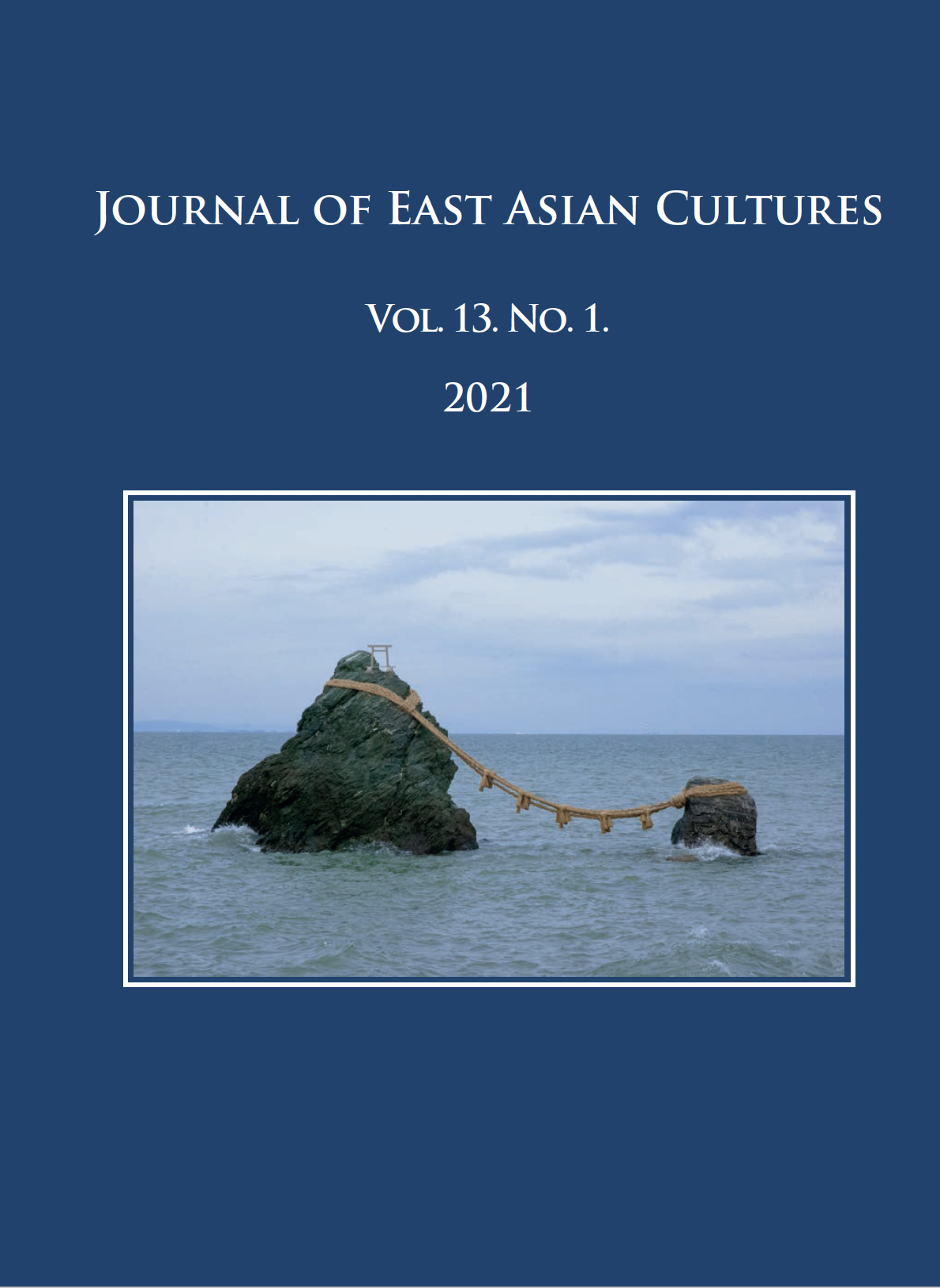Education and ‘Civilization’: Westernisation through Centralisation and the Concept of Women’s Education in Late 19th Century Japan
Megjelent 2021-12-15
Kulcsszavak
- Meiji-megújulás,
- Meiji-kor,
- oktatási reform,
- nyugatiasítás,
- nők oktatása
- Meiroku Zasshi,
- Meiji Hat Társaság,
- Mori Arinori ...Tovább
Hogyan kell idézni
Copyright (c) 2021 a szerző(k)

This work is licensed under a Creative Commons Attribution-NonCommercial 4.0 International License.
Absztrakt
A japán oktatási rendszer Meiji-kori átalakulásáról szóló tanulmányok gyakran hangsúlyozzák a reformok intenzitását és átfogó jellegét. A jelen tanulmány keretében röviden összefoglalom ezen átalakulás központi elemeit, majd az oktatást érintő Meiji-kori diskurzusban megjelenő feszültséggel foglalkozom. Ez a feszültség akkor válik láthatóvá, ha összehasonlítjuk a Meiji-kor mint a "felvilágosult" nyugati liberalizmus bevezetésének időszaka értelmezését a központosított reformok ideológiájával, amely közel sem volt oly mértékben liberális, amennyire a Meiji-korszak gondolkodói maguk is állították. Erre a feszültségre a Meiji-kori oktatási reformokban való megjelenésén keresztül mutatok rá, majd a nők oktatása mint a Meiji-kori családszemlélet központi kérdését veszem szemügyre. Az elemzés alapjául a korszak vezető gondolkodóinak az 1870-es években, elsősorban a Meiroku Zasshi-ban 明六雑誌 publikált írásai szolgálnak.
Hivatkozások
- [Fukuzawa Yukichi]. 1899. Fukuōjiden 福翁自伝 [Fukuzawa Yukichi’s Autobiography]. Tōkyō: Jijishinpōsha.
- Fukuzawa Yukichi. [1969] 2012. An Encouragement of Learning. New York: Columbia Uni-versity Press. Translated by David A. Dilworth and Umeyo Hirano, revised translation by David A. Dilworth.
- Meiroku Zasshi. Journal of the Japanese Enlightenment. 1976. Cambridge, Massachusetts: Harvard University Press. Translated with an introduction by William Reynolds Braisted. Assisted by Adachi Yasuchi and Kikuchi Yūji.
- Mitsukuri Shūhei 箕作秋坪. 1874. “Kyōikudan 教育談.” Meiroku Zasshi 明六雑誌 8: 3–5. In English: “On Education.” In: Meiroku Zasshi, 106–108. Translated by W. R. Braisted.
- Mori Arinori. 1871. Life and Resources in America. Prepared under the direction of Mori Arinori. Washington, D.C.
- Mori Arinori. 1873. Education in Japan: A Series of Letters Addressed by Prominent Ameri-cans to Arinori Mori. New York: D. Appleton and Company.
- Mori Arinori 森有禮. 1874a. “Saishōron 妻妾論.” Meiroku Zasshi 明六雑誌 8: 2–3. In Eng-lish: “On Wives and Concubines (Part One).” In: Meiroku Zasshi, 104–105. Translated by W. R. Braisted.
- Mori Arinori 森有禮. 1874b. “Saishōron 3 妻妾論三.” Meiroku Zasshi 明六雑誌 15: 1–2. In English: “On Wives and Concubines (Part Three).” Meiroku Zasshi, 189–191. Translated by W. R. Braisted.
- Nakamura Masanao 中村正直. 1874. “Zenryō naru haha wo tsukuru setsu 善良ナル母ヲ造ル説.” Meiroku Zasshi 明六雑誌 33: 1–3. In English: “Creating Good Mothers.” Meiroku Zasshi, 401–404. Translated by W. R. Braisted.
- Nishi Amane 西周. 1874. “Yōji wo motte kokugo wo shosuru no ron 洋字ヲ以て國語ヲ書スルノ論.” Meiroku Zasshi 明六雑誌 1: 1–10. In English: “Writing Japanese with the Western Alphabet.” Meiroku Zasshi, 3–16. Translated by W. R. Braisted.
- Nishimura Shigeki 西村茂樹. 1874. “Kaika no tabi ni yorite kaimoji wo hassubeki no ron 開化ノ度二因テ改文字ヲ發スヘキノ論.” Meiroku Zasshi 明六雑誌 1: 10–12. In English: “Why Reform of Writing Should Depend on the Level Enlightenment.” Meiroku Zasshi, 16–19. Translated by W. R. Braisted.
- Eisenstadt, Shmuel Noah. 1996. Japanese Civilization: A Comparative View. Chicago – Lon-don: University of Chicago Press.
- Fisher, Jerry K. 1983. “The Meirokusha and the Building of a Strong and Prosperous Nation.” In: Harry Wray – Hilary Conroy (eds.) Japan Examined: Perspectives on Modern Japa-nese History. Honolulu: University of Hawaii Press, 83–89.
- Hane, Mikiso. 1969. “Early Meiji Liberalism. An Assessment.” Monumenta Nipponica 24.4: 353–371. https://doi.org/10.2307/2383878
- Howland, Douglas. 2002. Translating the West: Language and Political Reason in Nineteenth-Century Japan. Honolulu: University of Hawai’i Press. https://doi.org/10.1515/9780824842727
- McVeigh, Brian J. 2004. Nationalisms of Japan: Managing and Mystifying Identity. Lanham – Boulder – New York – Toronto – Oxford: Rowman & Littlefield.
- Miyake, Yoshiko. 1991. “Doubling Expectations: Motherhood and Women’s Factory Work Under State Management in Japan in the 1930s and 1940s.” In: Gail Lee Bernstein (ed.) Recreating Japanese Women, 1600–1945. Berkeley – Los Angeles – London: University of California Press, 267–295.
- Molony, Barbara. 2000. “Women’s rights, Feminism, and Suffragism in Japan, 1870–1925.” Pacific Historical Review 69.4: 639–661. https://doi.org/10.2307/3641228
- Nolte, Sharon H. – Hastings, Sally Ann. 1991. “The Meiji State’s Policy Toward Women, 1890–1910.” In: Gail Lee Bernstein (ed.) Recreating Japanese Women, 1600–1945. Berke-ley – Los Angeles – London: University of California Press, 151–174.
- Papp, Melinda. 2016. Shichigosan: Change and Continuity of a Family Ritual in Contemporary Urban Japan. New York: Palgrave Macmillan.
- Rubinger, Richard. 1988. “Education: From One Room to One System.” In: Marius B. Jansen – Gilbert Rozman (eds.) Japan in Transition from Tokugawa to Meiji. Princeton: Princeton University Press, 195–230. https://doi.org/10.1515/9781400854301.195
- Swale, Alistair. 2000. The Political Thought of Mori Arinori: A Study in Meiji Conservativism. London – New York: Routledge.
- Uno, Kathleen S. 1999. Passages to Modernity. Motherhood, Childhood, and Social Reform in Early Twentieth Century Japan. Honolulu: University of Hawai’i Press. https://doi.org/10.1515/9780824863883
- Wakabayashi, Bob Tadashi. 1984. “Katō Hiroyuki and Confucian Natural Rights, 1861– 1870.” Harvard Journal of Asiatic Studies 44.2: 469–492. https://doi.org/10.2307/2719039
- Yanabu, Akira 柳父章. 2009. Hon’yakugo seiritsu jijō 翻訳語成立事情 [Circumstances of the Formation of Translation Terms]. Tokyo: Iwanami Shoten.

